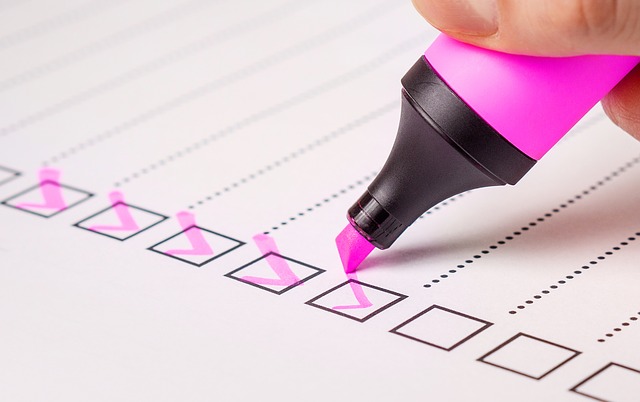Top 5 Couples Therapy Techniques You Can Use at Home (that really work!)
- Raffi Bilek

- Jan 29, 2019
- 8 min read
Updated: Jul 24, 2025
People who are considering couples therapy for their relationship often feel confused about what happens in couples therapy or what kind of couples therapy techniques to expect. The truth is that there’s little magic or mystery about the undertaking. It’s simply a process of looking at the issues in your marriage or relationship and trying to get the results you are looking for.

There are many different approaches to couples counseling that are effective – Emotion-Focused Therapy, Gottman Method, Relational Life Therapy, and Imago Therapy, just to name a few – and you may want to try different therapists with different therapeutic orientations to see which one fits the best.
But some people aren’t really ready to get themselves into a therapist’s office quite yet – or perhaps their partner isn’t. So here are five simple couples therapy techniques you can use at home to start working on your relationship.
You may find that with a few small shifts you can get your relationship back on the right track!
Couples Therapy Technique #1: Active Listening – ImproveYour Communication!
Most forms of couples therapy will use this tool in someform or another. It is a basic skill people can learn for improvingcommunication in a relationship. Often one or both partners complains offeeling unheard or misunderstood. This can dramatically turn things around.
How does it work?
When one of you wants to discuss an issue, that personbecomes the speaker and their partner becomes the listener. The listener’s jobis – you guessed it! – to listen. But the listener also has to check inperiodically to make sure they’re understanding their partner’s messages. Thisis done by reflecting what you’ve heard your partner say (ideally in your ownwords to convey the sense that you’re processing what they’re saying as opposedto just parroting back what you’ve heard).

It is critical that while you are the listener you do notinsert any of your own perspective into the discussion. That will come later;for now you are only trying to understand their point of view, not toexplain your own. This is harder than it might sound to put into practice. Thegoal is to get a full understanding of your partner’s perspective; if you arebringing your own to the table, you won’t be able to do so.
Only once you partner feels you have completely understood their point of view on this topic can you consider sharing yours. When you try to convince them of your perspective or explain how you see things before you have fully understood them, it only leads to more arguing, not more understanding.
Couples Therapy Technique #2: Time Out – Stop the Arguing
Despite the rather unsophisticated name, this tool isremarkably effective in preventing or cutting short arguments of all stripes.You know how when you get mad, there comes a point where you stop trying tocommunicate and start just lashing out? Let’s call that the Red Zone. When you get into the Red Zone, you are notin a position to fix this problem. Nor are you in a position to employ anybrilliant communication techniques. You’re not really rational at that point.
What can you do about it?
The trick is that you have to stop the train before youget into the Red Zone. That meanscalling a time-out. When you feelyourself getting emotionally too revved up, call yourself out. Say something like, “You know what, I’mgetting too upset here. I need a time out.”
But don’t stop there – the next piece is critical.
Follow up with “let’s come back in a half hour and try thisagain.” Have you ever tried to disengaged from an argument only to have yoursignificant other absolutely refuse to let you go, follow you around, or evenprevent you from leaving? The reason thathappens is because they feel like you’re trying to blow off the problem, likeyou don’t care about what’s bothering them. It feels like an abandonment, andpeople can have pretty strong reactions to being abandoned.

When you specify a time when you will continue thediscussion, you give your partner the message that you are coming backand that you do care. But it hasto be a specific time – half an hour, at 6:30, after breakfast – “let’s talkabout it later” won’t cut it. We all know that “let’s talk about it later”means “let’s talk about it never,” and it will be perceived as such. A goodtime frame is generally somewhere between 20 minutes and 48 hours.
Call a time-out, say when you’ll be back, then go to another room, or leave the house if need be. Do something to get your mind off the fight. Do not sit there stewing about it and coming up with a good comeback. That won’t help at all. Do what you do to calm yourself down – yoga, video games, Facebook, whatever it is – and then come back ready to try again.
Couples Therapy Technique #3: Date Night – Don’t Let YourRelationship Die!
All couples go through periods where they feel lessconnected to each other. This isespecially true if you have, say, a job, or a social life, or kids. Life can get so busy that you rarely havetime to talk to each other.

Or maybe you spend lots of time talking – but only aboutwho’s taking Jimmy to karate practice and when the insurance adjustor issupposed to show up and whether it’s time to get a new dishwasher yet becausethe old one is making a funny clanking noise. The practicals of life tend not to be very romantic, and a marriage orrelationship can sometimes drown in them.
That’s why this tool is essential.
Date night is widely recommended by couples counselors as away to enforce time spent together. (Ifthe level of anger and resentment in your relationship is currently so highthat any interaction you have turns into an explosion, however, it might not betime yet to try this one out.) Going ona date might seem awfully simple, but it can do a lot of good for theconnection in your relationship if you do it right.
Here are some key points to remember:
It has to be planned. Don’t just wait until the last minute and head out. Remember when you were in the actual dating phase of your relationship? You made reservations ahead of time. You cleared your schedule. You looked forward to the time. Spontaneity is great, but there also has to be an element of the expected in your relationship. Regular, planned date nights are good place to introduce that.
Prepare yourself. Another feature of your dates in the good old days was that you made sure you looked good. You thought about what you were going to wear. You paid attention to your appearance. And you disconnected from other issues and stresses in your life to give that date your full attention. No less is required here. Showing up in dirty workclothes with your eyes planted in your iPhone won’t cut it.
No talking about your to-do list! This point is key: if a date just turns into another discussion of Jimmy and insurance and appliances, you will have gained little. Be vigilant about avoiding topics that drag you down, are mentally taxing, or stress-inducing. It is also wise to stay away from talking about thekids – certainly as far as schedule planning or parenting is concerned. This is a time for your marriage/relationship, not for strategizing. (If you enjoy talking about the cute things the kids did today or other fun child-related topics, go for it – but if this is just going to lead you back into the minutiae of life as a parent, you may want to beg off). Of course, it is natural to slip back into discussions of all these topics. When that happens, gently and pleasantly – not loudly and condescendingly – remind each other that that’s not the purpose of your date time together and turn your attention back to other subject matter. (If you have trouble finding things to talk about, spend some time in advance thinking up topics you would both enjoy discussing [see point #2].)
Couples Therapy Technique #4: Conversation Time – StayConnected to Your Partner

We’ve already pointed out that life can be busy. The previous tool was about taking time tojust chill out together, without having to focus on “the issues” in your life.So when do you focus on those issues?
Conversation time is about setting aside a regular chunk oftime to hash out these questions, whether it’s about how to handle your3-year-old’s tantrums, when to reassess the budget, or what to do about the rutin your sex life. It is all too easy toavoid talking about the serious issues when time is so tight and there’s alwayssomething else to do. Designating aconsistent time – say, half an hour a week – to address these concerns is agood way of making sure these conversations happen.
There are other benefits, too:
Knowing that you have a conversation time already set, youwill be better able to deal with frustrations that come up during theday-to-day because you know there will be a time to talk about it and it won’tgo forgotten – so you don’t need to rail about it and lose your cool in themoment. To this end, it is a good idea to keep a planned agenda for thesesessions, ideally where both of you can view it so you know what’s coming up.

If you have a running agenda, this also can help yourpartner prepare for conversations that might be difficult or anxiety-provoking.And it can give both of you time to think about how you feel about the issueand what you’d like your partner to know about your perspective on it.
You will also be able to feel like you are remaining connected around the issues that are on each other’s minds. Knowing what concerns your partner and committing to addressing it makes a strong statement to them that you care about what’s going on in their life and what’s bothering them.
Couples Therapy Technique #5: Build Love Maps – Get toKnow Each Other (Again)
This tool comes from the toolbox of John Gottman, theleading marriage researcher in the country. One of the linchpins of Gottman’sapproach to successful marriages is what he calls Love Maps – the internalblueprint we keep of our partner’s inner world. Maintaining an updated map is an important part of keeping a strongmarital friendship, and it is this friendship more than anything else that willkeep your relationship thriving over the long term.

To do this, open-ended questions are what’s called for.There are plenty of products on the market to help stimulate some questions,but of course you can come up with your own as well. Open-ended questions are one you can’t answerwith a yes or no. And for our purposes here, they are meant to elicit stories,details, historical trivia, hopes, fears, dreams, and any other informationthat comprises the inner world of your loved one.
Here are some examples:
Who was your best friend asa kid? Why?
What hobby would you wantto take up if you had time?
Where is the mostinteresting place you’ve ever visited?
What do you hope yourretirement will look like?
You’ll notice that these questions aren’t all that scary.They can provoke interesting and fun conversations. And you can broaden anddeepen as time goes on, perhaps getting to some of those more intimate anddifficult questions whose answers are a little further under the surface, andmaybe are a little scary. (“What do you like best about yourself? Whatdo you like least?”)
What’s the upshot?
Knowing your partner and feeling known builds a foundation for a relationship that can survive the ups and downs that every couple will experience and that can remain vital and meaningful for the long term.
These top couples therapy techniques can certainly help you repair and improve your relationship, but don’t chuck the idea of meeting with an actual counselor altogether. If you’re still struggling to right your marriage or relationship, a professional can do a lot of good. If that’s where you’re at, feel free to contact us for a free consultation to see how we might be able to help you.




Comments